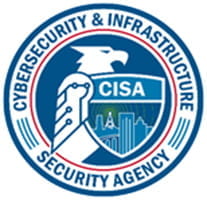2024 Call for Presentations
Oregon Cyber Resilience Summit
2024 Edition
Cybersecurity in an AI World
October 8, 2024
CALL FOR PRESENTATIONS
You are invited to submit a proposal for presentation during the Oregon Cyber Resilience Summit to be held on October 8, 2024, at the University of Oregon. You will have the opportunity to share your experience and expertise with security practitioners, thought leaders, faculty, and students. Others will benefit from your experience while you make a valuable contribution to the cyber and information security profession. Our goal is to present attendees with an educational, informative, inspirational, and entertaining professional development experience.
About the Summit
The Oregon Cyber Resilience Summit (OCRS) was first introduced in 2018 and every Summit aligns its content under the umbrella of a common theme that brings together attendees, speakers, and sponsors. Multiple industries and sectors are represented, including federal, state, and local governments, information technology (IT) partners and vendors, K-12, and higher education (both employees and students), financial, and power and electric — a true community convergence!
Cyber threats represent some of the most significant challenges to our national security, economic system, and way of life. Cyber risks affect all sectors: critical infrastructure, power and energy, banking, higher education, and many more. The interconnectedness and interdependence among all sectors of our community cause cyber incidents in one area to affect the whole community. Consequently, it is paramount that we work together to defend our cyber “things.”
Every year, we build on the success of previous OCRS events by continuing to embrace the “whole community” approach, bringing together the private and public sectors, owners and operators, cybersecurity experts, students, and community members to network and train together to defend our infrastructure from cyber threats.
Event Location, Host, and Partners
The event will be hosted by the University of Oregon at its Eugene campus, in partnership with the U.S. Department of Homeland Security (DHS) Cybersecurity and Infrastructure Security Agency (CISA), the Federal Bureau of Investigations (FBI), Oregon Department of Justice Titan Fusion Center (OTFC), and the Technology Association of Oregon (TAO).
Time Management Guidance
- Each presentation will last about 30 minutes.
- We encourage you to leave time at the end for questions.
- You can expect about 50 to 150 attendees in your presentation room.
There will be five breakout sessions throughout the day. Each of the three tracks will have one presentation during each time slot.
Topical Guidance
We are looking for presentations that align with any of the three tracks and the summit’s 2024 theme: Cybersecurity in an AI World.
Below is a list of sample topics that can be covered. We also welcome presentations on other innovative ideas.
The summit will feature three tracks:
Cyber-Physical
addressing the growing challenge of securing interconnected information technologies (IT) and operational technologies (OT)
Cyber-Technical
providing deep technical insights into real-world attacks
General Cyber Resilience Awareness
building general user awareness
Cyber-Physical
This track will focus on addressing the growing challenge of securing interconnected information technologies (IT) and operational technologies (OT). Participants for this track will be students and cyber, and physical security practitioners.
Examples of topics to cover include:
- Power grid or other critical infrastructure – risk to and from IT or OT connections.
- Industrial cyber vulnerabilities – case studies on how they are exploited and how to protect those systems.
- Threats to IT and OT – for individuals and institutions relating to ransomware, safety, physical security, and other areas and how to defend against them.
- DDoS (Distributed Denial of Service) attacks – case studies on networks, power grid, air traffic control, etc.
- Drone technology – impact of drone technology on cybersecurity and safety.
- Physical device hacking – credit card skimmers, surveillance systems, access and environmental controls.
Cyber-Technical
[Note: Preference will be given to more technical presenters who can engage with and transfer impactful knowledge to IT and security professionals.] This track will focus on providing deep technical insights into real-world attacks. Participants for this track are students, cybersecurity and IT professionals who care about the underlying details of how attacks are carried out, detected, and associated responses. Cases studies of real-world attacks or concepts are highly desired.
Examples of areas to cover include:
- Prevalence of Generative AI Systems – how generative AI models can impact privacy and security in our daily lives.
- Challenges and opportunities around securing the remote workforce – how has the COVID-19 pandemic changed the way security is done?
- Technical insights into well-known attacks – how they were carried out or how the culprits were caught.
- Malware defense – insights into malware creation and distribution on the dark web, R&D development by defenders, defense/antidote. Storytelling and case studies are ideal for this area.
- The dark web – insights into what it is, risks associated with using it, real case studies on gathering intelligence in the dark web. Specific examples that shed light on how anonymity is attained in the dark web — e.g., use of TOR.
- Cyber incident response – real case studies and actual response to well-known attacks recently in the news.
- Integrating the MITRE ATT&CK framework into your cybersecurity practice.
- Attack demonstrations – real-world hacking (with examples). E.g., demo of injection attacks, man-in-the-middle, cross-site scripting, malware, etc.
- EDR, MDR, XDR – what to choose and why?
- Using AI and machine learning – to process threat intelligence.
General Cyber Resilience Awareness
This track will provide general user awareness. Participants for this track are students, communications and training professionals and general members of the public.
Examples of areas to cover include:
- Increasing cybersecurity awareness – how to build communities that are aware of cyber challenges and can navigate our ever-expanding digital lives
- Increasing diversity of cybersecurity workforce – how do we work together to increase diversity and fill open positions?
- Remote work – addressing challenges and best practices for a remote workforce.
- Social engineering – real-world examples of phishing, vishing, smishing, and damage to individuals and institutions.
- Malware – real-world examples of ransomware, sexploitation, data harvesters, etc., and damage to individuals and institutions.
- Basic tools for everyone – insights into basic tools (free or cheap) available to individuals, small businesses, and for personal use.
- Industry trends – deepfakes, zoombombing, are VPNs dead?
- Fighting security fatigue – what can be done to keep the community vigilant.
Proposal Submission Timeline and Process:
- Submission deadline: June 17, 2024, at Midnight
- Notification of acceptance/rejection: August 1, 2024
- Final presentation materials due: September 16, 2024
- Summit presentation date: October 8, 2024
To submit a proposal for presentation, please send the following via email to: ocrs@uoregon.edu
- Short bio sketch of the prospective speaker/presenter.
- Topic/title of presentation and intended track.
- Synopsis of presentation and how it meets the objectives of the corresponding summit learning track.
Note: Proposals from vendors are stronger when paired with a customer implementation.
Thank you for considering contributing to the 2024 Oregon Cyber Resilience Summit. We are excited for the opportunity to bring the community together to strengthen our cyber resilience.




